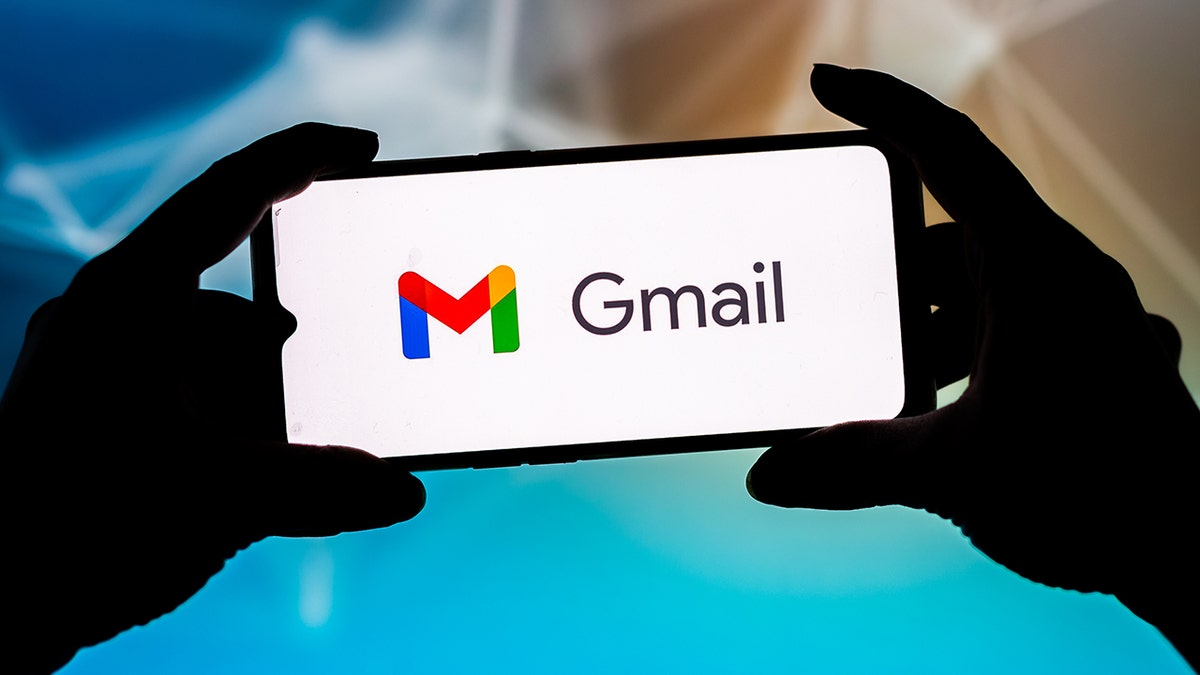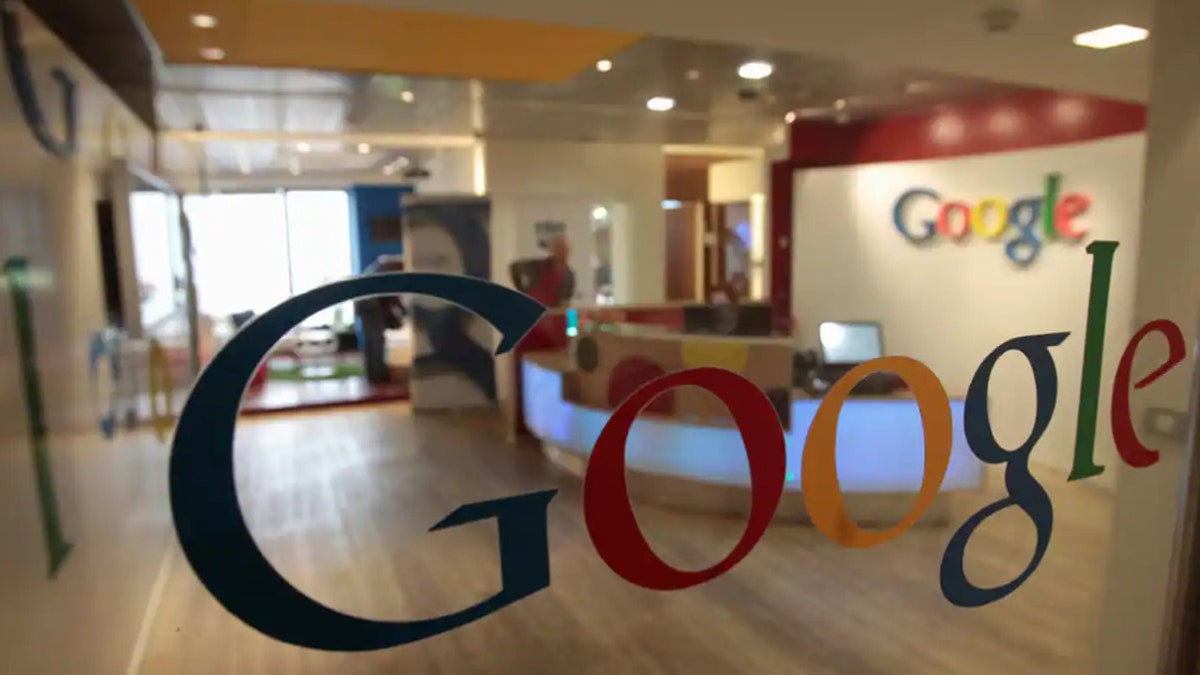Fox News Flash top headlines for April 8
Fox News Flash top headlines are here. Check out what's clicking on Foxnews.com.
A new study found that Google’s Gmail favors liberal candidates, allowing the vast majority of emails from left-wing politicians to land in the user’s inbox while more than two-thirds of messages from conservative candidates are marked as spam.
North Carolina State University’s Department of Computer Science published, "A Peek into the Political Biases in Email Spam Filtering Algorithms During US Election 2020," last week in order to determine if spam filtering algorithms (SFAs) are biased toward a particular political party or ideology. The extensive study took place over a course of five months, from July 1, 2020 to November 30, 2020 on Gmail, Outlook, and Yahoo. They created 102 email accounts and subscribed to two Presidential, 78 Senate, and 156 House candidates.

A new study found that Google’s Gmail favors liberal politician candidates, allowing emails from most left-wing politicians to land in the user’s inbox while more than 75% of messages from conservative candidates are marked as spam. ( Mateusz Slodkowski/SOPA Images/LightRocket via Getty Images)
"To accurately estimate the political biases and mitigate any potential effects of demographics (ethnicity, age, and gender), we created multiple email accounts with different combinations of demographic factors and designed two experiments. The first experiment studies the general trends of biases in SFAs across the email services for the Presidential, Senate and House candidates. The second experiment studies the impact of different email interactions such as reading the emails, marking them as spam, or vice versa on the biases in SFAs. We designed an automated process to perform all the subscriptions, and took periodic backups to keep all the email accounts active as well as to keep track of the correct number of spam emails received over the course of data collection for each of the three services," they wrote.
"We made several important observations in our study. For example, as an aggregate trend, Gmail leaned towards the left while Outlook and Yahoo leaned towards the right. Yahoo retained about half of all the political emails in inbox (up to 55.2% marked as spam) while outlook filtered out the vast majority of emails (over 71.8%) from all political candidates and marked them as spam," the proposed methodology section continued. "Gmail, however, retained the majority of left-wing candidate emails in inbox (< 10.12% marked as spam) while sent the majority of right-wing candidate emails to the spam folder (up to 77.2% marked as spam)."
The study "further observed that the percentage of emails marked by Gmail as spam from the right-wing candidates grew steadily as the election date approached while the percentage of emails marked as spam from the left-wing candidates remained about the same" in the days leading up to Election Day.
The study, conducted by Hassan Iqbal, Usman Mahmood Khan, Hassan Ali Khan and Muhammad Shahzad, aimed to determine whether email services exhibit aggregate political biases, treat similar emails from senders with different political affiliations in the same way, if the interactions of the users with their email accounts, such as reading emails, impact the political biases of SFAs and whether SFAs exhibit different political biases for recipients belonging to different demographic.

The study indicates that spam is largely defined as "unsolicited email that comes from an entity that the recipient is not already aware of or has no interest in knowing about," but Google defines it as "any content that is unwanted by the user."
Google dismissed the group’s findings.
"Political affiliation has absolutely no bearing on mail classifications in Gmail and we've debunked this suggestion, which has surfaced periodically from across the political spectrum, for many years. Mail classifications in Gmail automatically adjust to match Gmail users' preferences and actions. Gmail users can move messages to spam, or to any other category. Gmail automatically adjusts the classifications of particular emails according to these user actions," a Google spokesperson told Fox News Digital.
The study indicates that spam is largely defined as "unsolicited email that comes from an entity that the recipient is not already aware of or has no interest in knowing about," but Google defines it as "any content that is unwanted by the user."
"This is significantly different from the criteria proposed by the previous research in that the spam email does not have to meet any of the explicitly defined conditions so long as there is a reason to believe that the email may be unwanted by the recipient," the authors wrote.
The researchers noted that researchers have studied SFAs in the past and have identified five types of features that appear to influence the decisions of SFAs, including the metadata about email content, the actual content of the email, the reaction of the recipient, the attributes of the sender and the demographics of the recipient.
"The spam filtering algorithms (SFAs) in the widely-used email services of today such as Gmail, Outlook, and Yahoo do not provide any transparency on their internal workings. Given the lack of this transparency, an important question to study is whether these SFAs hold any biases towards certain political affiliations," the researchers wrote. "This question is motivated by the growing body of evidence suggesting that the biases in online algorithms can influence undecided voters. For example, Epstein et al. showed that the bias in search rankings can shift the voting preferences of the undecided voters by as much as 20% without those voters being aware of the manipulation."
The team from N.C. State’s Computer Science Department feels "biases may have an unignorable impact on the outcomes of an election" even if the email service isn’t deliberately meddling.

"Gmail marks a significantly higher percentage (67.6%) of emails from the right as spam compared to the emails from left (just 8.2%)" researchers wrote
"While we have no reason to believe that there were deliberate attempts from these email services to create these biases to influence the voters, the fact remains there that their SFAs have learnt to mark more emails from one political affiliation as spam compared to the other. As these prominent email services are actively used by a sizable chunk of voting population and as many of the voters today rely on the information they see (or don’t see) online, such biases may have an unignorable impact on the outcomes of an election," researchers wrote.
Google’s extremely popular email service was found to be overwhelmingly in favor of content from liberal candidates.
"We further observe that Gmail marks a significantly higher percentage (67.6%) of emails from the right as spam compared to the emails from left (just 8.2%)" researchers wrote. "Gmail marked 59.3% more emails from the right candidates as spam compared to the left candidates."
CLICK HERE TO GET THE FOX NEWS APP
The group also found that in "Gmail and Yahoo, the number of emails from the left and from the right have a noticeable influence on the percentages of their emails marked as spam. However, such influence is not seen in the case of Outlook."
Researchers were unable to find "consistent actions that one could recommend to users to help them reduce the bias in the way the SFA treats political emails" that are sent to them.
"We conclude by noting that fairness of spam filtering algorithm is an important problem that needs dedicated attention from email service providers, particularly due to the enormous influence that electronic communication has in our lives today and will have going forward," the researchers wrote. "Therefore, there is an imminent need to develop techniques that reduce the biases of SFAs while simultaneously ensuring that the users do not receive unwanted emails."
A Google spokesperson also told Fox News Digital that the company offers a "range of free tools and resources" to help campaigns across the political spectrum and noted that "spam markings made by the recipients" is a key reason for spam filter differences.










































